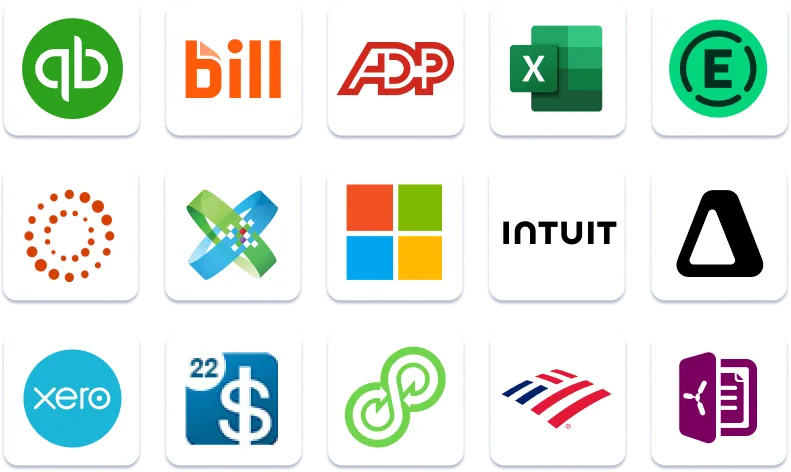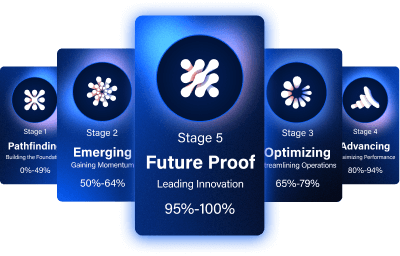If you work for an accounting firm, you may have been working on virtual desktop infrastructure (VDI) for the last several years. In simple terms, VDI enables users to leverage any device to access company software assets.
Some firms manage their infrastructure internally. Others are delivered VDI by a third party, saving them from:
- The cost of buying and maintaining servers or a network infrastructure
- Securing that server and network infrastructure
These days, even the largest firms are leveraging providers to manage their VDI. Having a managed virtual desktop infrastructure allows the firm to be entirely focused on its clients.
Types of virtual desktop infrastructures
Providers may offer VDI built or delivered on:
- A virtual machine (VM)
- The public cloud (also called desktop-as-a-service…or DaaS)
The public cloud has tremendous benefits—as is the case with a managed cloud approach, broadly speaking. However, firms often gain performance improvements and peace of mind with a dedicated VDI instance built on a VM. A VM allows the provider to control all aspects of the client’s infrastructure.
VDIs support flexible work environments
The benefits of a virtual desktop infrastructure go beyond performance. From a talent perspective, it’s been a boon to the accounting profession.
With the proliferation of pandemic-related work-from-home jobs, VDI has enabled access to resources from anywhere—enhancing their competitiveness as employers.
With the accounting profession still facing a talent shortage, solutions that support flexible work schedules are key to long-term retention and firm success.
VDIs help accounting firms scale
Remotely accessing company assets while maintaining performance solves only one portion of an accounting firm’s list of technology concerns. Firms need to go further; their technology must cover every aspect of daily operations.
To be able to add new employees rapidly, scale your client base and add higher-value services, consider the following technology goals:
1. Collaboration
Your technology approach needs to support a work-from-anywhere culture. Most VDI solutions get you part of the way there, but certain firm-specific considerations must be made:
- Ensure external, cloud-based productivity and collaboration applications work side-by-side with desktop applications in your virtual environment.
- Is the VDI designed with your firm in mind? Customization and flexibility are key. You want your entire team working within the VDI whenever client data is accessed. This is less likely to happen if key applications are missing or are less than functional.
2. Value to clients
Have you recently considered the extent to which your choice of VDI or other firm-related technology affects your end clients? Your technology platform should:
- Enable clients to securely collaborate with you on accounting and tax documents.
- Be innovative and support the rollout of new, higher-value services.
3. Security
Related to the subject of customer experience, your clients are trusting your firm with their most sensitive data. VDI is a great first step to securing your business. However, the threat landscape is such that you should consider providers that deliver security services that:
- Further protect individual devices, such as endpoint detection response (EDR).
- Offer ongoing monitoring to make the risk of any kind of data loss less likely.
- Train your staff on avoiding email-based threats.
4. In-office services
While COVID has changed the nature of work, many firms still maintain one or more office locations. Your best bet for a cohesive technology strategy is selecting a provider that offers add-on, in-office services—such as maintaining a physical firewall to keep your employees safe and productive wherever they work.
5. Success and growth
Is your local managed service or VDI provider large or niche-focused enough to consult your firm about how technology investments can support your firm’s growth? If not, you’re missing out on accounting firm-specific expertise. VDI is a jumping-off point for scaling your firm. Together with your provider, you should plan for how you can leverage managed infrastructure, security and collaboration tools to support your firm’s future roadmap.
Virtual desktop infrastructure is a great first step
Moving to a virtual desktop infrastructure is a great first step to improving performance, supporting an anytime-anywhere work culture and bolstering security.
But to build a flourishing, high-growth firm, your technology checklist needs to be much broader. Does your VDI provider focus on employee experience, collaboration with clients, security—as well as performance? This multi-pronged approach to your tech stack is key to scaling your firm.
To learn more about Rightworks’ VDI offer, OneSpace Firm Premier, contact us today.





